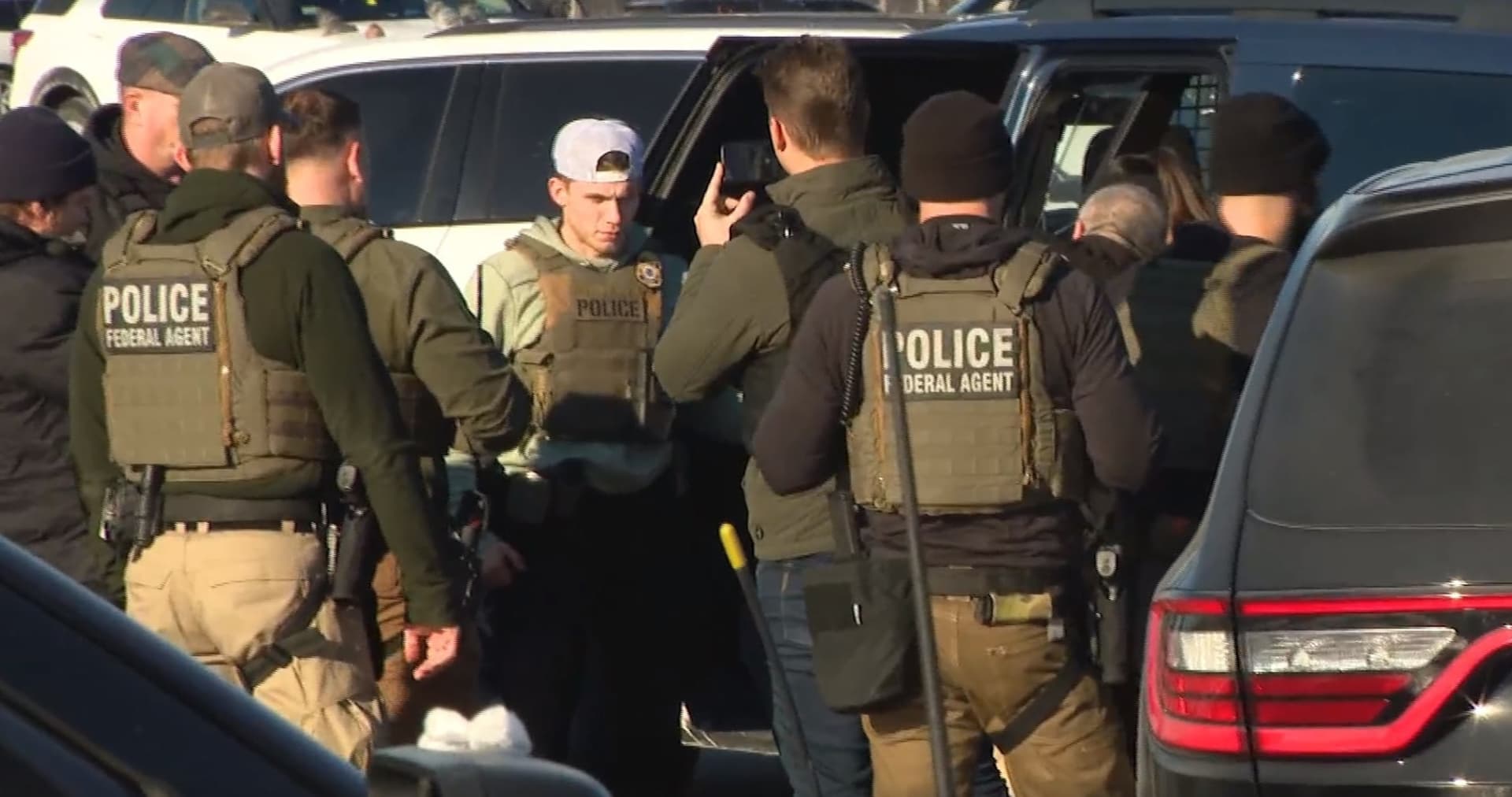Federal Agents Expand Immigration Operations, Hundreds Arrested Across Cities
Federal immigration enforcement agencies carried out a multi day campaign that officials said resulted in hundreds of arrests across North Carolina and other jurisdictions, raising new disputes over tactics and local cooperation. The uptick in arrests, including more than 250 in the Charlotte area, has prompted protests and legal challenges that could reshape municipal relations with federal authorities and influence public debate on enforcement priorities.

Federal immigration agents conducted a multi day enforcement operation that culminated on November 19, 2025 with agencies reporting hundreds of arrests across multiple jurisdictions, including a concentrated sweep around Charlotte, North Carolina. Department of Homeland Security officials said the actions were part of a broader campaign focused on noncitizens with criminal records or prior orders of removal, while local advocates and elected officials warned that the tactics swept up workers and family members and strained community trust.
Updated tallies from the North Carolina operation showed more than 250 arrests centered in and around Charlotte, and officials in other jurisdictions reported additional apprehensions as the operation unfolded. Federal authorities characterized the activity as targeted enforcement, but the breadth of the operation and the speed of arrests have drawn accusations of indiscriminate enforcement from immigrant rights organizations and some municipal leaders.
The raids prompted immediate public reactions. Demonstrations were held in several cities as advocacy groups mobilized to protest the scale and manner of the operations, and legal challenges were announced by organizations that contend the enforcement exceeded constitutional limits or violated state and local practices regarding cooperation with federal immigration authorities. Municipal officials said they were fielding concerns from residents and service providers about people taken into custody and family members left without income or support.
The expansion of enforcement operations highlights enduring friction between federal immigration priorities and the authorities and policies of local governments. Cities that have sought to limit local assistance to federal immigration actions argued that large scale federal sweeps undermine community policing and deter cooperation with local law enforcement. Federal officials have countered that enforcement of removal orders and arrest of individuals with criminal records falls squarely within federal purview.
Policy implications could be significant. Legal challenges may focus on the statutory and constitutional boundaries of federal enforcement, the criteria used to select targets for arrest, and the transparency of the operations. Court decisions could narrow or clarify agency authority and influence the design of future operations. At the municipal level, the incidents are likely to spur renewed debate among voters and elected officials about local cooperation with federal immigration enforcement, resource allocation for legal services and family support, and the protections afforded to residents regardless of immigration status.
The operations also carry electoral and civic implications. Public protests and litigation could increase civic engagement among affected communities and their allies, shaping local and statewide political agendas ahead of future elections. Advocacy groups are expected to press for more oversight and data on arrests, detentions and outcomes, while some local leaders will press federal authorities for clearer criteria and coordination to avoid unintended disruptions to families and workplaces.
As the legal and political responses develop, officials on all sides face pressure to provide detailed accounting of who was arrested and why, and to explain how enforcement actions will be reconciled with community safety objectives and civil liberties protections.

